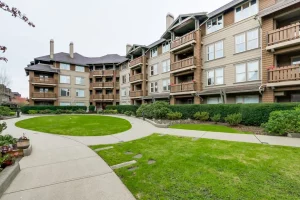While many Managing Agents, Bodies Corporate, and Homeowner’s Associations will try and initially deal with debts owed by trying to collect levies in arrears themselves, not all cases can be handled without legal help or assistance from a partner that specialises in dealing with these challenges.
At Stratafin we specialise in offering our clients real cash flow solutions to help restore their positive cash balance. We understand the stress arrear levies can cause for Managing Agents, Homeowner Associations, and Bodies Corporate. We take on the risk and the cost of the collection process and assist every step of the way as well as resolving the conflict situations and restoring your balance sheets by giving you immediate access to cash.
1. How does Stratafin determine what they are prepared to pay to the Body Corporate in respect of the arrear levy book?
Stratafin looks at several key factors which include the following: the value of the property; the age of debt; a comparison between the debt amount and the property value; legal compliance; the time period of the collection; whether the property is bonded or not, as well as, the outstanding bond amount and the debtor’s individual credit status. These factors are fed into our unique actuarial credit risk model, which then analyses the risk involved on each unit and gives us an adjusted levy debt purchase price related to the individual unit. Our product is not a loan but an outright purchase!
2. Does the Body Corporate have to sell all outstanding debt to Stratafin?
Because of our unique model and because the risk is individually accessed, we are prepared to buy all or any debt that we have accessed the risk of and which the Body Corporate is willing to sell. If a Body Corporate wishes to sell the entire outstanding levy book, we are your choice services provider. Alternatively, should they wish to sell selected debtors of the outstanding levy book, we are still happy to assist. There is no monthly repayment to Stratafin by the Body Corporate.
3. What documents are required for Stratafin to start the process?
To get the process off the ground, we require a copy of the levy roll or age analysis as well as the monthly individual levy statement for every debtor. We will then obtain all the remaining information ourselves, in respect of such unit, for example, the valuation; bond information; owner details, and owner credit information, to enable us to supply the Body Corporate with a preliminary debt assessment.
4. Would Stratafin require further documentation to conclude the agreement?
Our Legal Department will do a full due diligence inspection prior to the agreement being entered into and will require various documents. These documents are in accordance with the Sectional Title Schemes Management Act and are to be produced and kept by the Body Corporate. In the event that some of these documents are not available, our expert team will assist you in remedying these errors to get your Body Corporate fully compliant.
5. Does Stratafin get involved with the management of your Body Corporate?
No, Stratafin specialises in the purchase and collection of arrear levies and leaves the management of schemes in the hands of those professionals, that manage schemes on a day-to-day basis. We trust you in your choice of Managing Agent and we trust your Managing Agent in their handling of your affairs, in accordance with your instructions.
6. If a debtor has been handed over for legal action, do Stratafin still consider them?
Yes, we do. We will offer a higher amount and take the risk of collecting over as well as the legal proceedings.
7. Is there any recourse to the Body Corporate?
No, we collect the funds from the debtor through a legal process. The Body Corporate is no longer involved. Our solution is not a loan.
8. Does the Body Corporate need to notify the homeowner that Stratafin is taking over?
No, the funds remain outstanding regardless of the purchase, however, Body Corporates do often give 2-week’s notice to the homeowner, whilst proceeding with the sale.
9. Can levies be written off?
Yes, in accordance with IFRAS, the Trustees need to act in the best interest of the financial status of the Body Corporate.
10. What happens after the sale of the debt/arrear levies?
New debt still belongs to the Body Corporate and Stratafin does not get involved in the management of the Body Corporate. The Body Corporate can choose to resell the new debt in a few months, should they need more assistance. Stratafin only purchases the historic debt and not future levies.
11. How long does the process take?
As soon as we have received all the necessary documentation from the Body Corporate, payment is made within 48 hours.
12. Where are the funds paid to?
The monies are paid into the Body Corporate’s trust account. The only time it is paid to the Managing Agent is if the Body Corporate provides a fidelity fund certificate.













